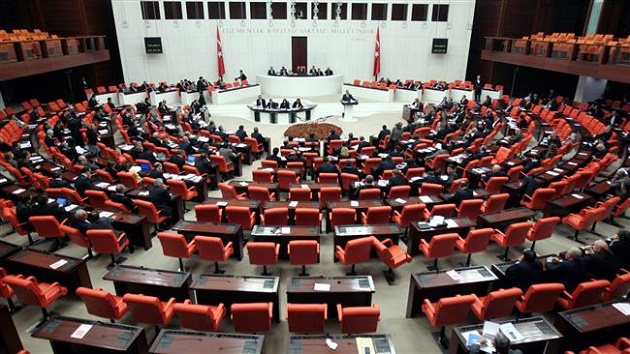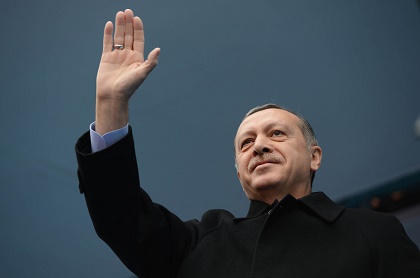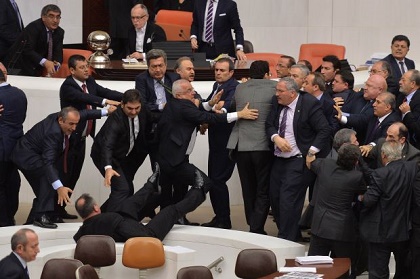Plans for a new constitution would make it easier for the head of state to order a state of emergency. The post of Prime Minister could be abolished.
 General view turkish parliament.
General view turkish parliament.
The powers of Turkey’s President Recep Tayyip Erdogan will continue to be expanded. The Parliament held a preliminary vote for a new constitution.
Under the new constitution, the President would have strengthened executive powers to directly appoint top public officials including ministers. The office and position of Prime Minister could be scrapped, AFP reported.
Under the draft constitution, a state of emergency would be imposed in the event of an “uprising against the homeland” or “violent actions which put the nation in... danger of being divided”.
 Recep Tayyip Erdogan. / Flickr (CC)
Recep Tayyip Erdogan. / Flickr (CC)Legislative elections would take place once every five years (instead of four) and on the same day as the presidential elections.
MORE TIME IN POWER FOR ERDOGAN
The draft constitution states that the next presidential and parliamentary elections are to be held simultaneously on November 3, 2019.
The President would have a 5-year term with a maximum of two mandates. Erdogan was elected president in August 2014 after over a decade as prime minister, in the first ever direct elections for a Turkish head of state.
But there have been suggestions that the clock on his presidency will start from zero from 2019 as the new constitution creates a new presidential role.
STRONG CRITICISM FROM THE OPPOSITION
Debates over the constitutional changes have been heated. Only a few days ago, a fight broke out between members of the opposition and the pro-government majority.
 A fight erupted in the Turkish parliament on January 19, 2017. / Agencies
A fight erupted in the Turkish parliament on January 19, 2017. / AgenciesThere will be a second round of voting later this week and, if approved, a referendum will follow.
A COUNTRY FACED WITH MANY CHALLENGES
On January 4, the parliament approved a government-backed motion to extend by another three months the state of emergency imposed in the wake of July’s coup attempt.
Since then, Protestants churches (including evangelicals) have been put under pressure, and foreign Christian workers have been detained and deported.
Turkey has 79 million citizens, and faces several crisis: the arrival of thousands of refugees, terrorist attacks by Daesh and other gourps and internal political conflicts (with the Kurds, especially).
One of the keys of Erdogan’s time in power has been the introduction of Islamic concepts in many spheres of public life.

Las opiniones vertidas por nuestros colaboradores se realizan a nivel personal, pudiendo coincidir o no con la postura de la dirección de Protestante Digital.
Si quieres comentar o